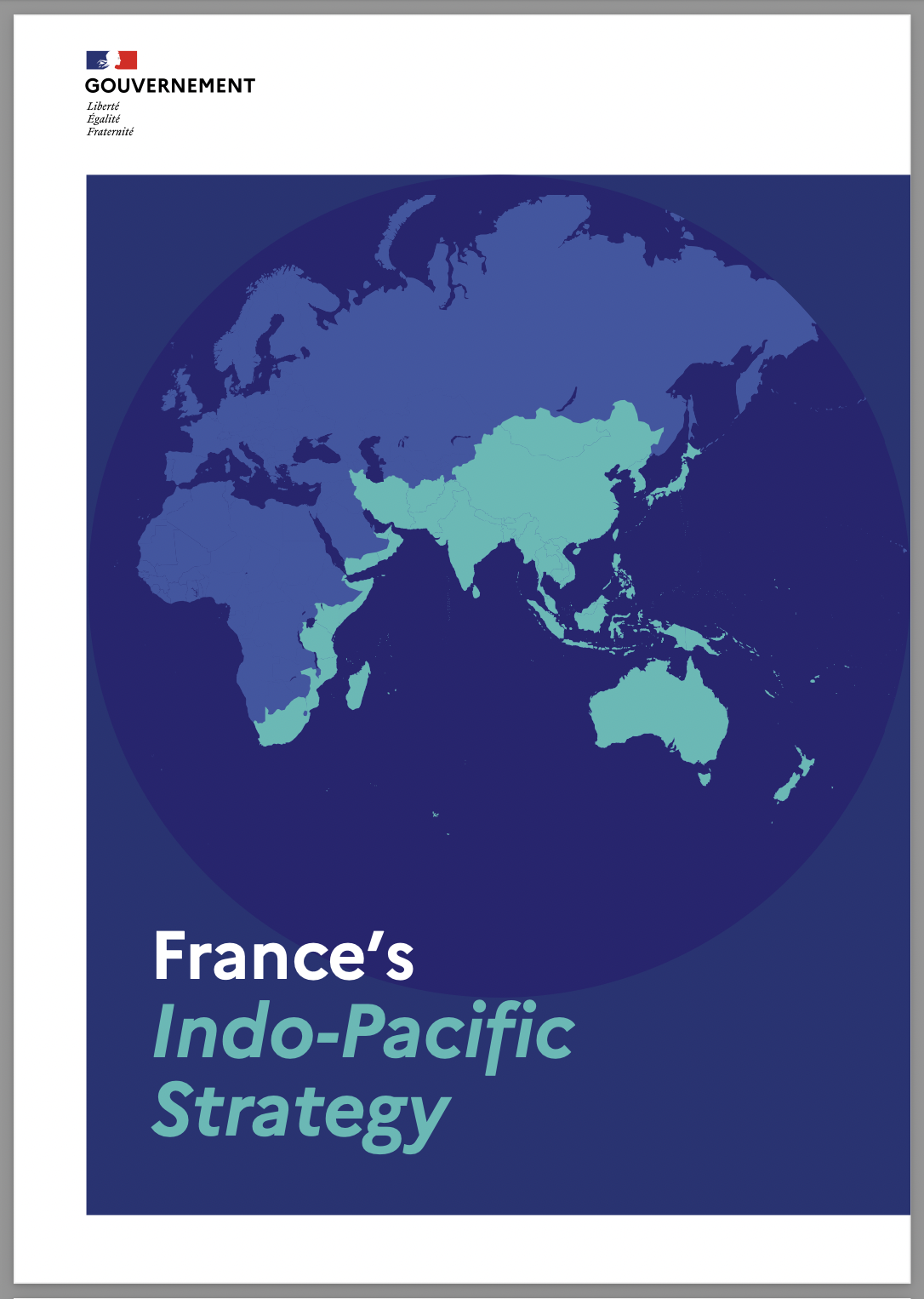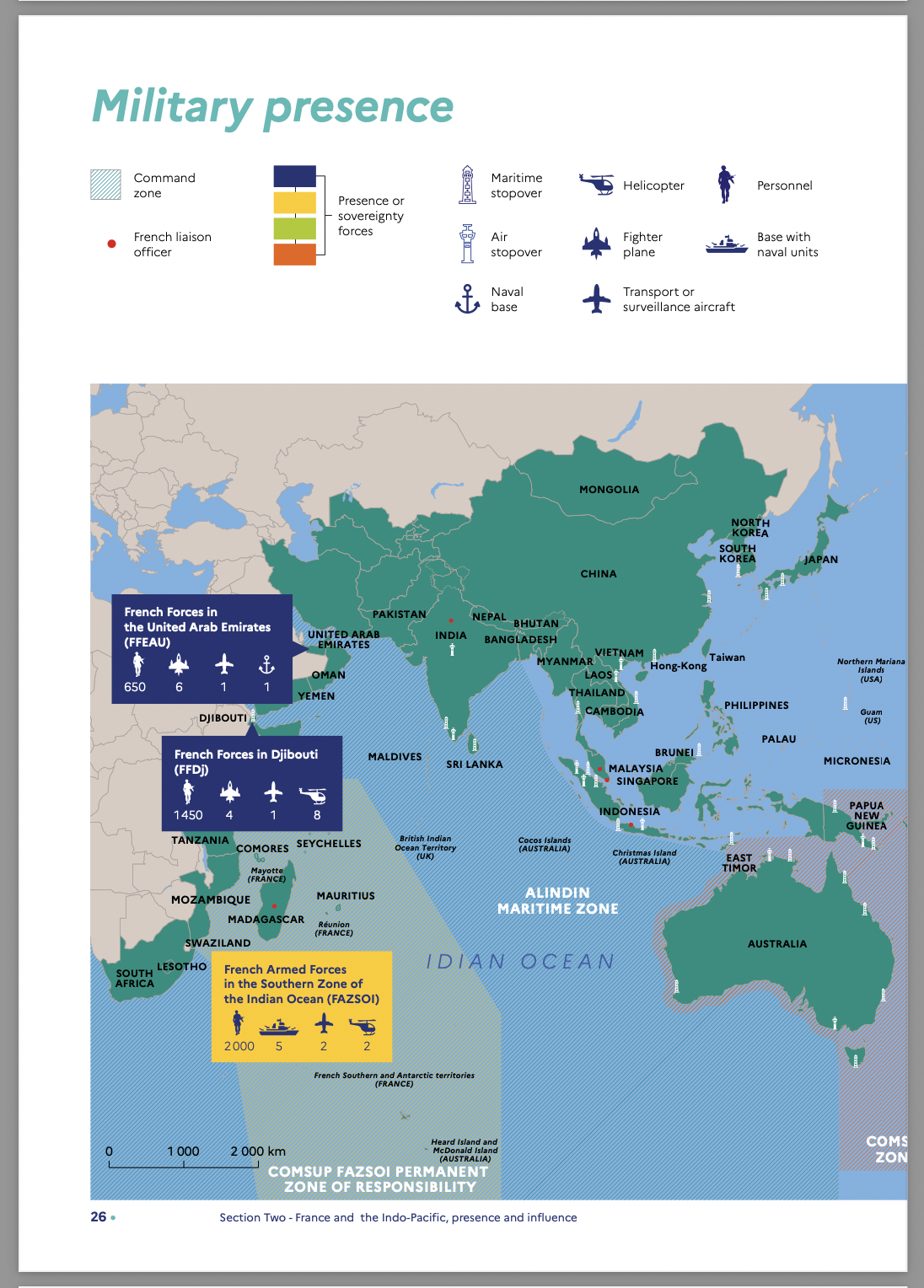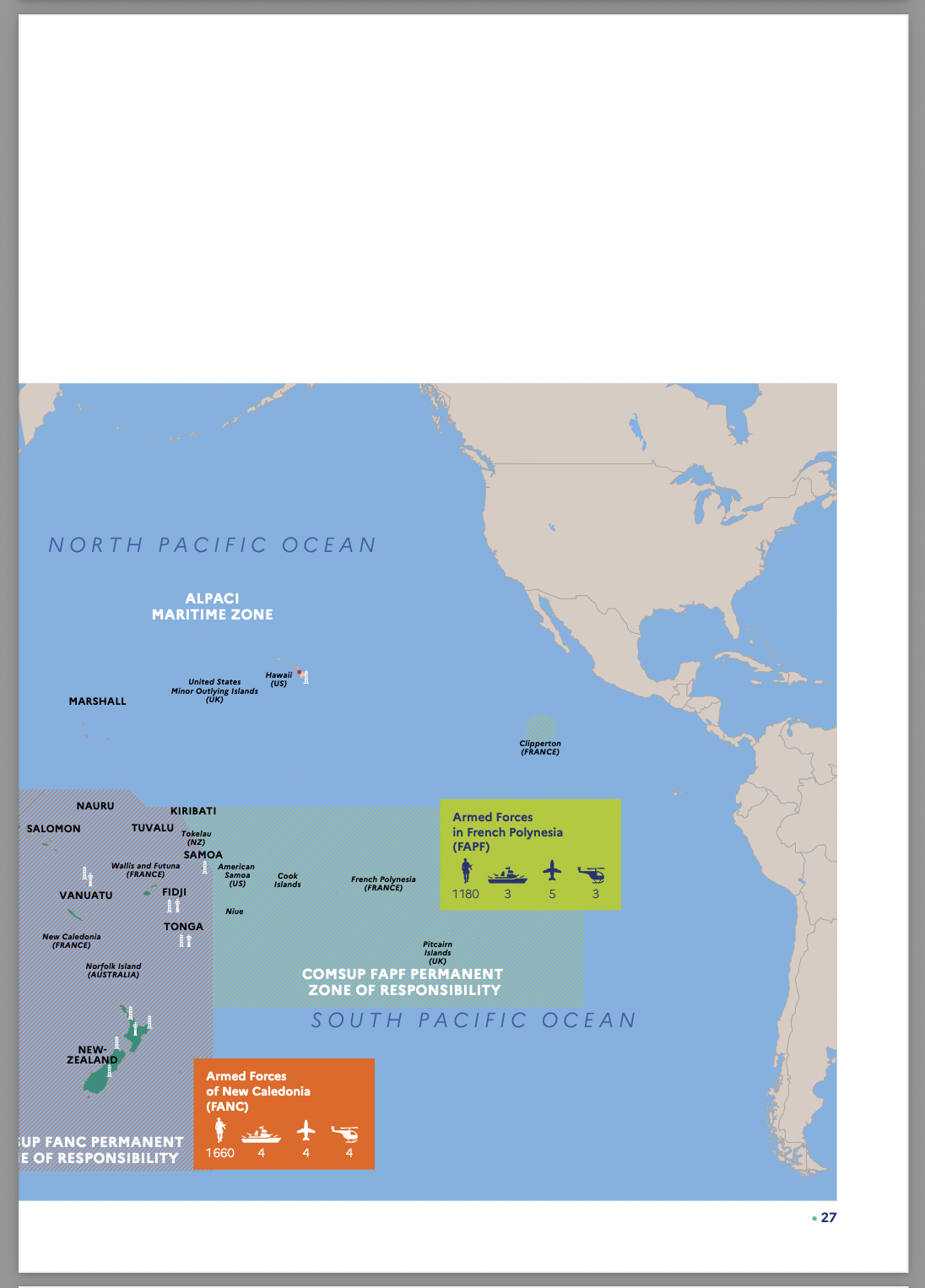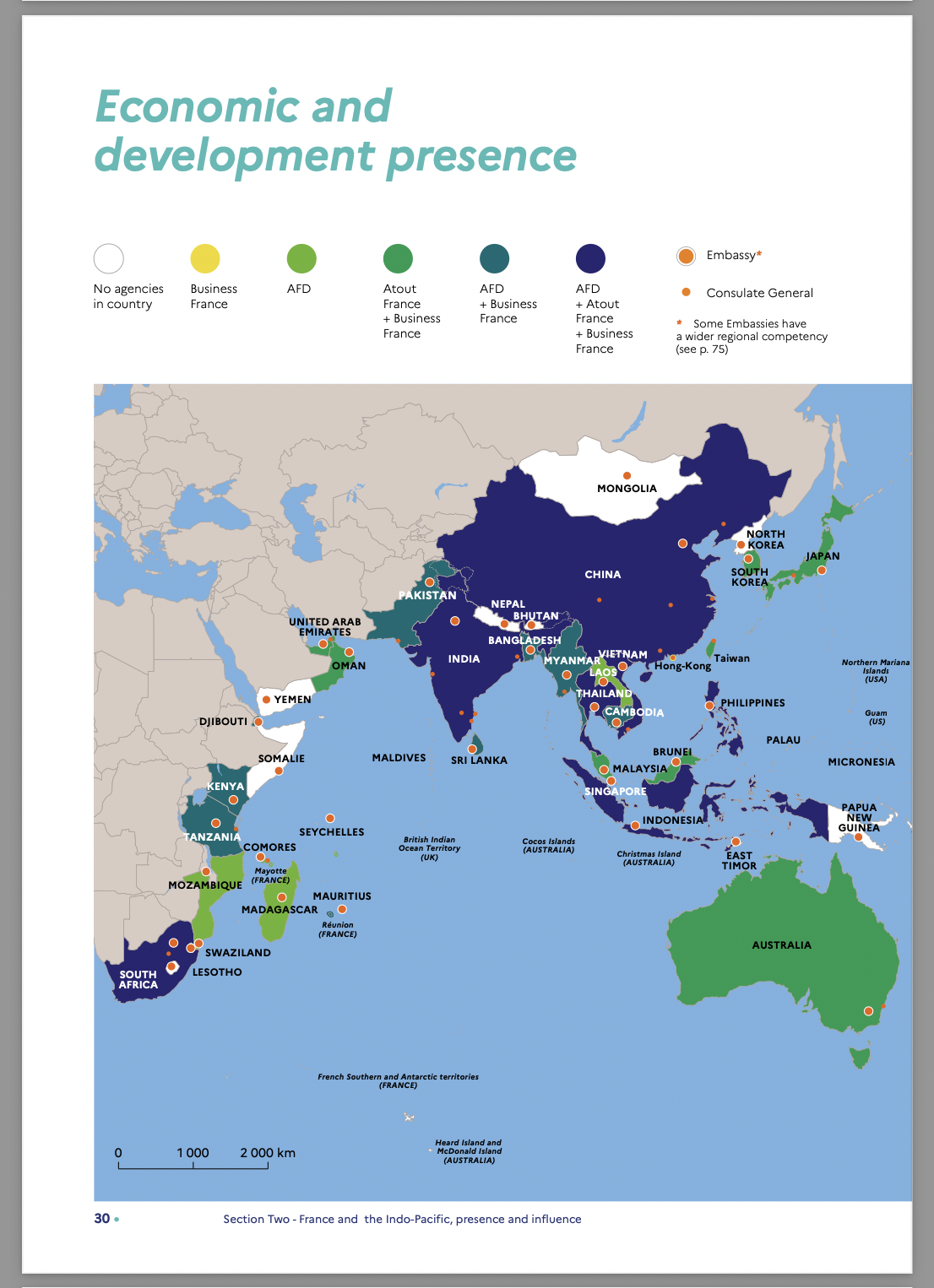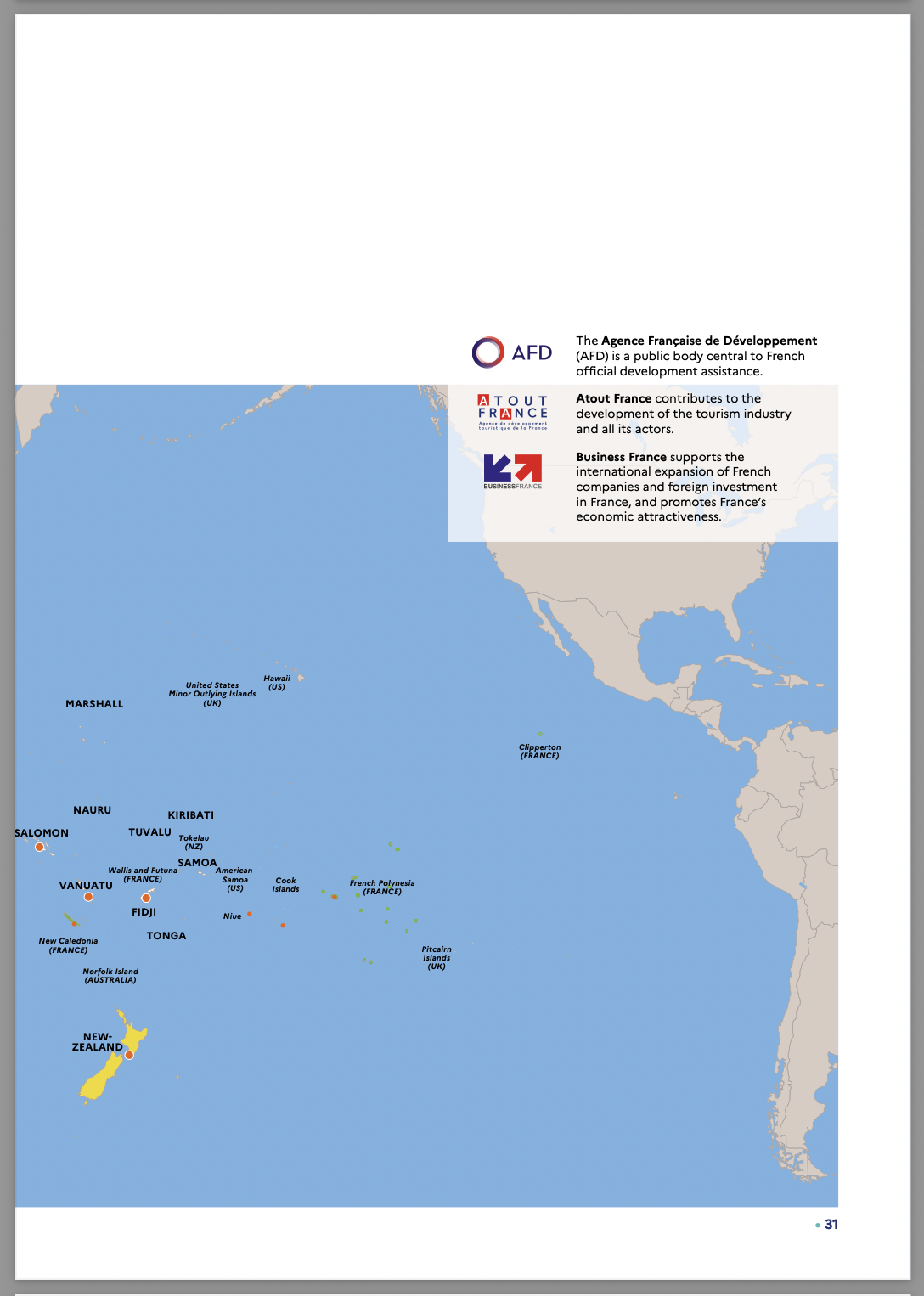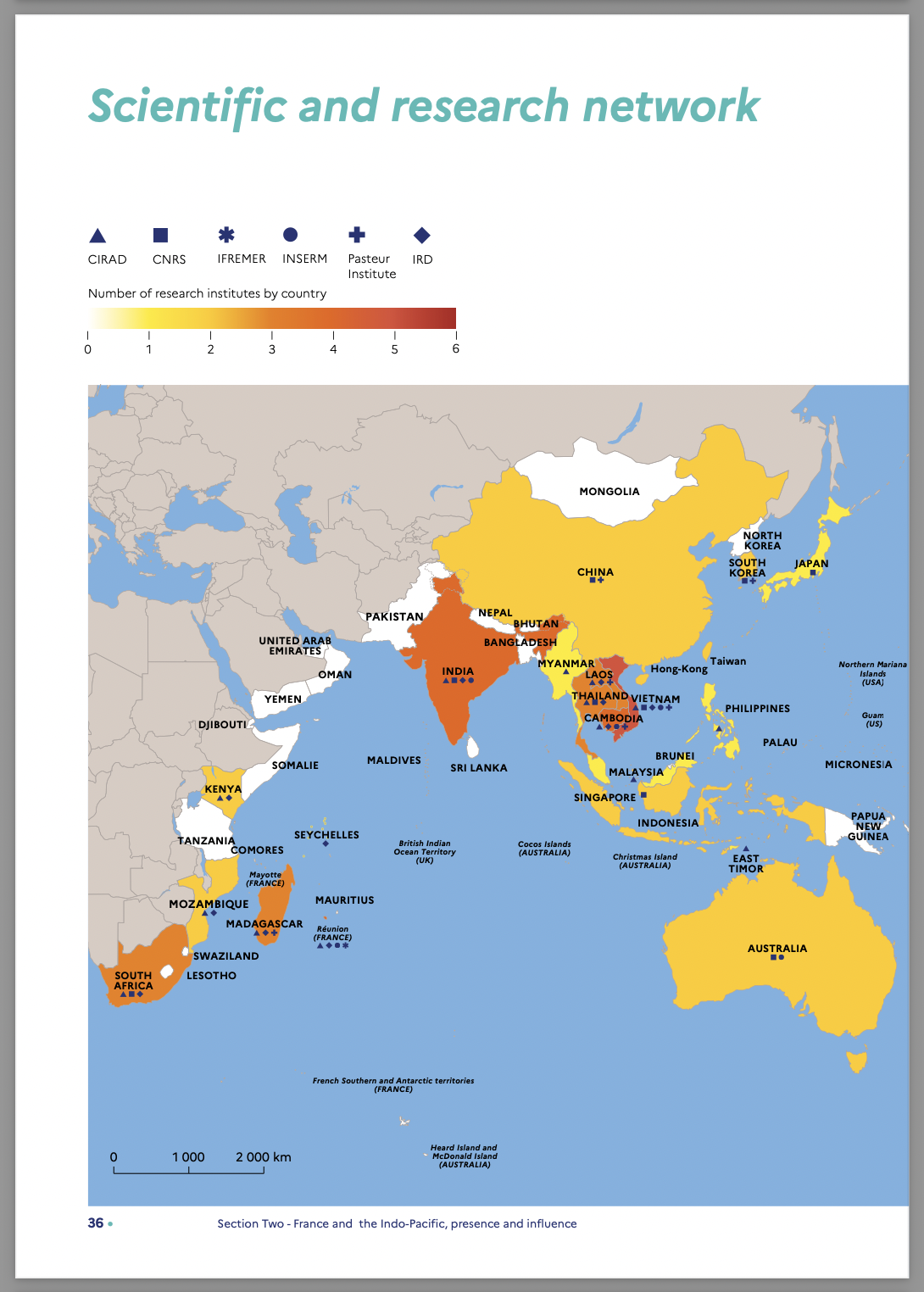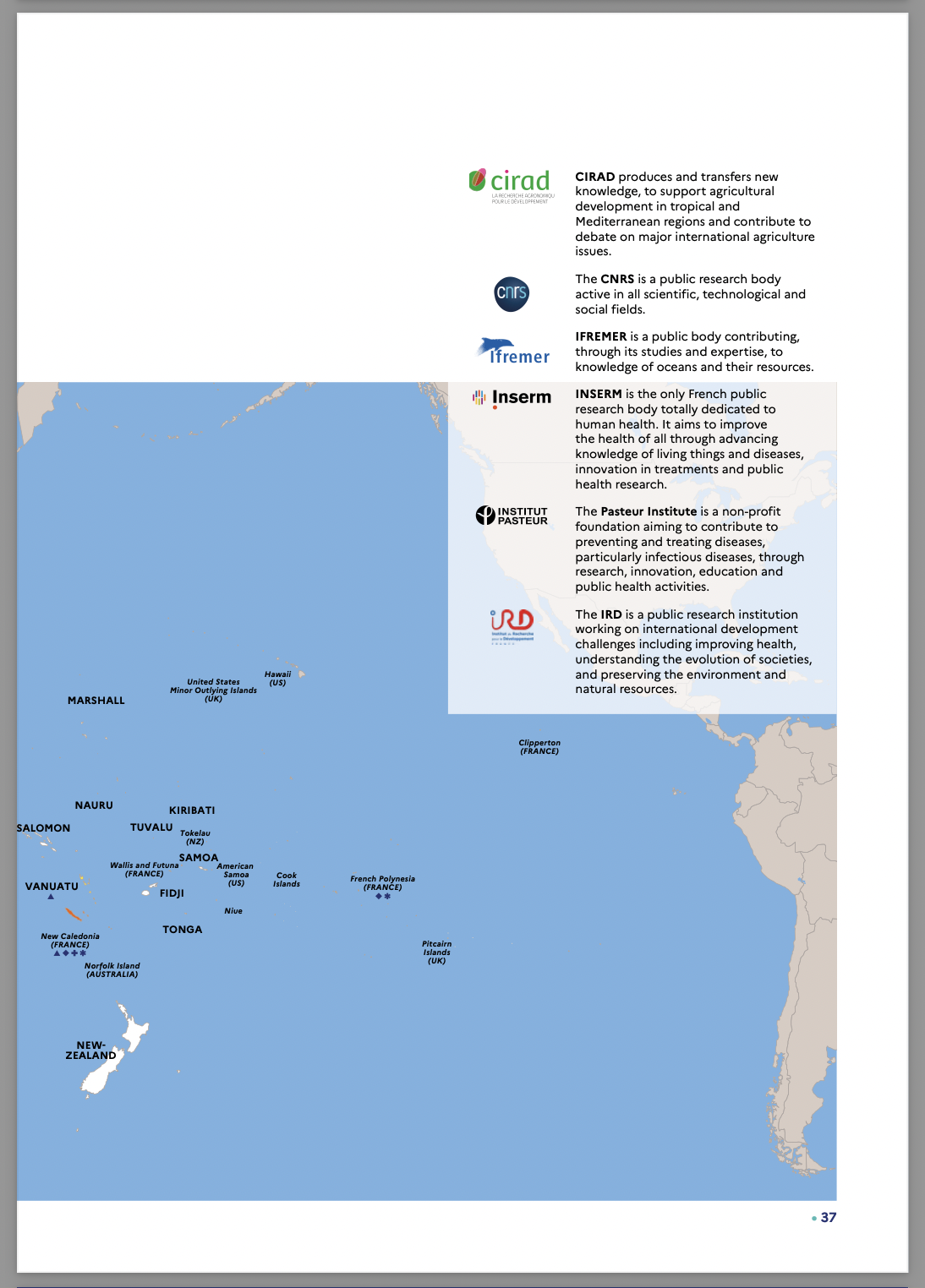France’s Indo-Pacific Strategy: Priority Focus by a Resident Stakeholder
France’s Indo-Pacific Strategy (Paris: Ministry for Europe and Foreign Affairs, 28 July 2021).
Click here to download a cached copy.
A summary is available here.
Click here for further background.
Read brief report on “France’s Partnerships in the Indo-Pacific (April 2021).”
REPORT CONTENT:
Section One – The Indo-Pacific: a region with polarizing tensions and significant global issues
The main principles and objectives of France’s Indo‐Pacific strategy were presented in the founding speeches made by President Macron in Sydney (Garden Island) on 2 May 2018, during the Ambassadors’ Conference on 27 August 2019, and in Saint‐Denis de la Réunion on 23 October 2019 (“Choose La Réunion” summit). The French approach presented by President Macron seeks to maintain a space that is open and inclusive, free of all forms of coercion, and in accordance with international law and multilateralism, which extends from the eastern shores of Africa to the island States of the Pacific. President Macron noted the importance of our major partnerships and underlined the role that our overseas departments and communities in the Indian and Pacific Oceans play in regional cooperation.
SUMMARY
The Indo-Pacific: a region with polarizing tensions and significant global issues
The French strategy in the Indo‐Pacific seeks to maintain an area that is open and inclusive, free of all forms of coercion and founded on multilateralism and the respect of international law.
The Indo‐Pacific is an area seeing profound strategic changes. China’s increasing power and territorial claims, as well as the global competition under way with the United States, are weakening the balance of power in the region. The context is also marked by transnational threats, proliferation crises, and security consequences due to climate change that are increasingly evident. The oceans are at the heart of the tensions, and securing shipping lanes and the freedom of navigation remain major issues. France seeks to preserve a rules‐based international order, an approach that it shares with its main partners.
From an economic standpoint, the Indo‐Pacific has been the new driver of global growth for the past two decades. The region demonstrates significant regional integration, and its economic vitality relies on a middle class that is mobile, connected, and increasingly urban. These markets offer great opportunities for French companies. The region’s financing needs in terms of infrastructure are significant. The concentration of investments in the digital sector, and the proactive policies of States in favour of research also make the Indo‐Pacific an area that is on the cutting edge of innovation.
At the same time, the Indo‐Pacific is at the heart of major global challenges. It is one of the global regions that is the most directly impacted by environmental issues and climate change. It is home to the richest and most fragile biodiversity reserves on the planet. A number of countries in this region are among the biggest emitters, alongside the States that are the most vulnerable to extreme climate phenomena. Needs in terms of healthcare are increasing, and combating infectious diseases is a major challenge.
Lastly, as part of its commitment to the rule of law, France works to support the protection of human rights in the Indo‐Pacific region.
France and the Indo‐Pacific, presence and influence
With its overseas departments and communities, France is a nation in its own right in the Indo‐Pacific. These territories represent a population of 1.65 million people, and make France the second‐largest economic exclusivity zone in the world (10.2 million km2). The protection of its citizens and its sovereign territory is one of the main missions of the French security and defence strategy in the Indo‐Pacific. The role of the French territories is essential in regional cooperation, due to their strategic location, the size of their maritime domain and the resources that it contains, their role in ecological transition, and the existence of a very extensive network of agencies and research institutes.
The French State’s network in the Indo‐Pacific is dense, with a diplomatic and consular presence in 39 States. The French State agencies, including research bodies, are also very present. Furthermore, France also maintains a permanent military presence in the Indo‐Pacific. These pre-positioned forces play a central role in implementing cooperation efforts with partner countries and also play a leading role in terms of evacuating French citizens and providing humanitarian aid during natural disasters. Furthermore, the regular deployment of ships and aircraft from continental France offers opportunities for exchange with the main partner countries, including India, Australia, Japan, and the United States.
Commerce with the Indo‐Pacific represents more than a third of French trade in goods outside of the EU, and it has grown by 49% in 10 years. The French instruments that provide support for export and development assistance are mobilized to meet needs in those areas. The total amount outstanding for funds from the AFD Group in Indo‐Pacific countries was more than €9 billion in 2020, all sectors combined. In terms of credit insurance, the Indo‐Pacific (excluding China) represented a total amount outstanding of almost €13 billion. Furthermore, the Indo‐Pacific received a fifth of the global total of loans offered by the French Treasury from 2010 to 2020.
Lastly, the Indo‐Pacific is an essential region for the development of French educational institutions, student mobility, and cooperation in research and innovation. Some 53,000 students are enrolled in 95 French educational institutions in the Indo‐Pacific region and attract more and more foreign students. Students in Asia‐Oceania represent 45% of global student mobility, and France hosts 50,000 of these students. In terms of research, in a very competitive environment, France has a network of research bodies established across the region which have created solid partnerships and have renowned expertise. … … …

